What's the Liability to Report Medicare Upcoding?
Every person and health care provider has a and other forms of health care fraud. Medicare medical fraud costs the government and taxpayers a lot of money, thus making it a cause for alarm.
Criminal healthcare fraud such as upcoding and unbundling attracts charges in the form of civil monetary penalties. You may be liable for restitution and damages if you get charged under criminal and civil law provisions. Therefore, as a healthcare provider, you are responsible for reporting any Medicare billing fraud signs, especially since healthcare fraud cases sometimes stem from simple mistakes.
As a non-staff, you can get rewarded if you report Medicare fraud. However, besides the monetary rewards, it is your responsibility to bring any suspected health care fraud to light since such illegal activities can directly or indirectly affect you as a taxpayer.
What is CPT Upcoding?
Upcoding is a health care fraud type involving the manipulation of Current Procedural Terminology, also known as CPT codes. The CPT codes help in billing Medicare or Medicaid for their services, which have different unique CPT codes.
The government pays different cash amounts for different CPT codes. However, health care providers engage in upcoding when they provide false information to Medicare or Medicaid, including an incorrect CPT code, typically a code that attracts more money than for the service provided.
Examples of CPT Upcoding
An MRI test might attract a reimbursement of a certain amount (X). However, an MRI test with contrast (a procedure where a patient receives a contrast agent injection, allowing MRI machines to provide extra data) might attract a reimbursement of a higher amount (2X).
Each MRI test has a unique code that Medicare uses to identify the service provided and the money to be refunded to the hospital. However, upcoding comes where a health care provider bills the service as 2X instead of X, while in actual sense, the provider conducted an MRI test worth X.
How to Report Medicare Upcoding
Here is how to report health care fraud against Medicare or Medicaid:
- Get an attorney- Hiring an attorney is among the most certain ways of receiving a reward for reporting Medicaid upcoding. Get a lawyer to file a qui tam suit under the False Claims Act. Therefore, choosing a whistleblower attorney experienced in reward applications for health care fraud whistleblowers is important.
- If you are the patient receiving treatment, contact the provider and ask about the billing irregularities.
- If you still suspect fraud, call Medicare. You can also contact the US Department of Health and Human Services – Office of the Inspector General. The Office of the Inspector General is among the government organizations which provide oversight for upcoding frauds by physicians.
| Office | Phone Number |
| Medicare | 1-800-MEDICARE (1-800-633-4227) |
| The U.S. Department of Health and Human Services – Office of the Inspector General | 1-800-368-1463 |
What You Need to Report Medicare Upcoding Fraud
When calling to report health care fraud, ensure you have the following information with you:
- Your name and Medicare number
- The provider's name you're reporting and other identifying information
- The item/service you're questioning and when you allegedly received it.
- The Medicare-approved and paid amount.
Fortunately, you don't have to raise your Medicare upcoding fraud suspicion by yourself. DoNotPay is a reliable partner for individuals seeking clarity when it comes to medical billing. DoNotPay is the perfect solution to help you find the correct CPT code. DoNotPay can also help you write a demand letter for bill correction and avoid Medicare fraud penalties.
Report Medicare Fraud with DoNotPay's Help
If you want to find the correct CPT codes or report Medicare Upcoding fraud, DoNotPay has got you sorted in the following simple steps:
- Search Fight Medical Fraud on DoNotPay.
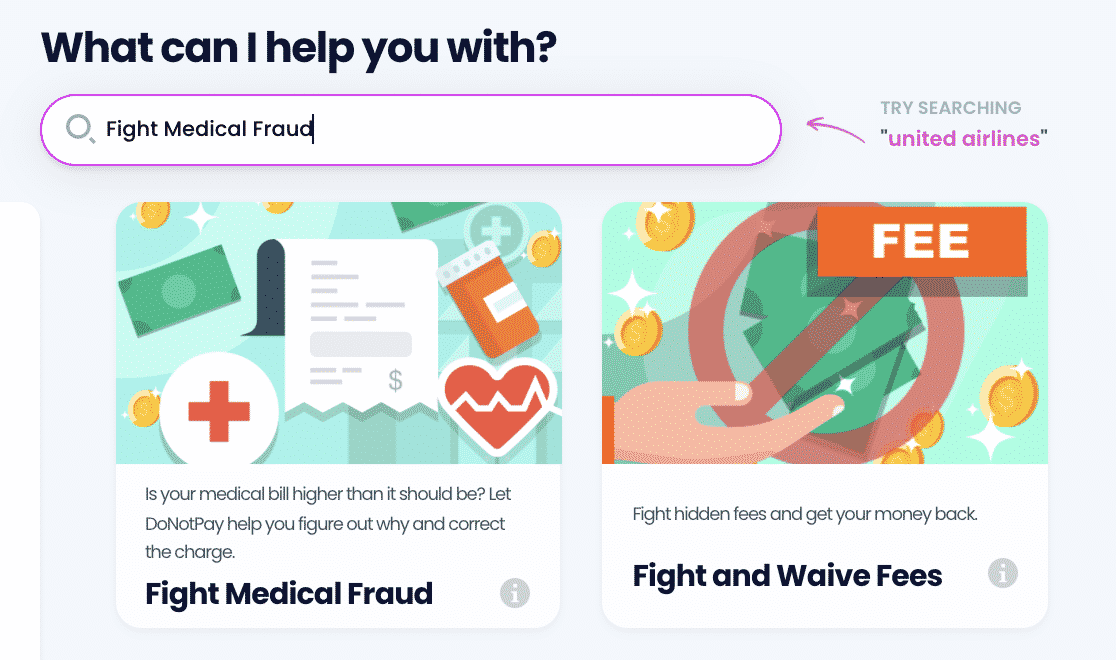
- Tell us the date of your visit, what you were treated for, and where you were treated.
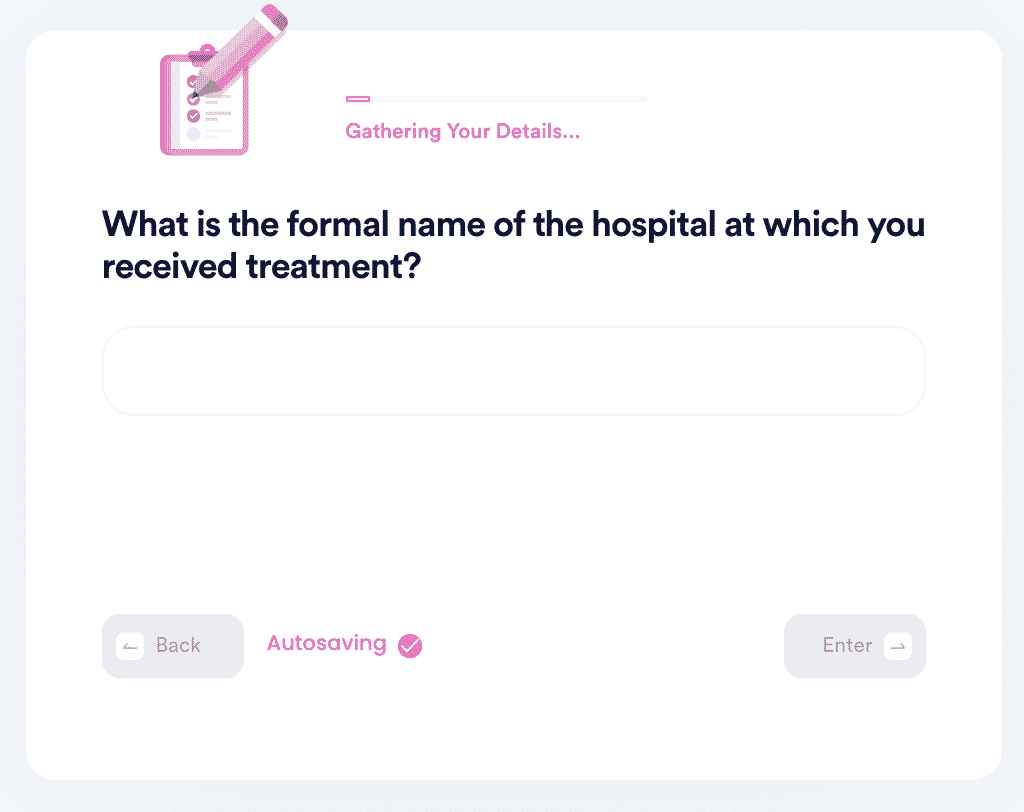
- Let us know what CPT code your visit was filed under. If you don't know, we'll generate a letter for you to send to your physician to request the code.
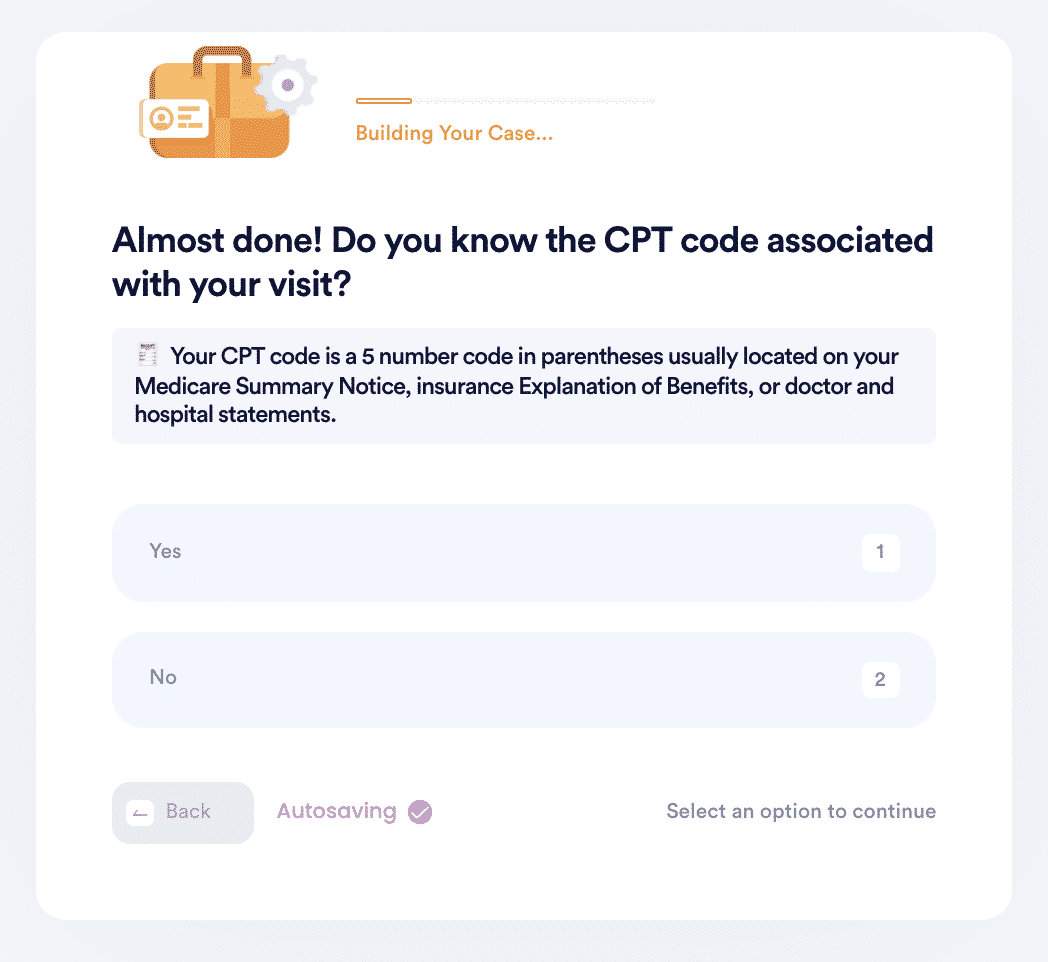
- Choose the correct CPT code or let us know if you want us to find it for you.
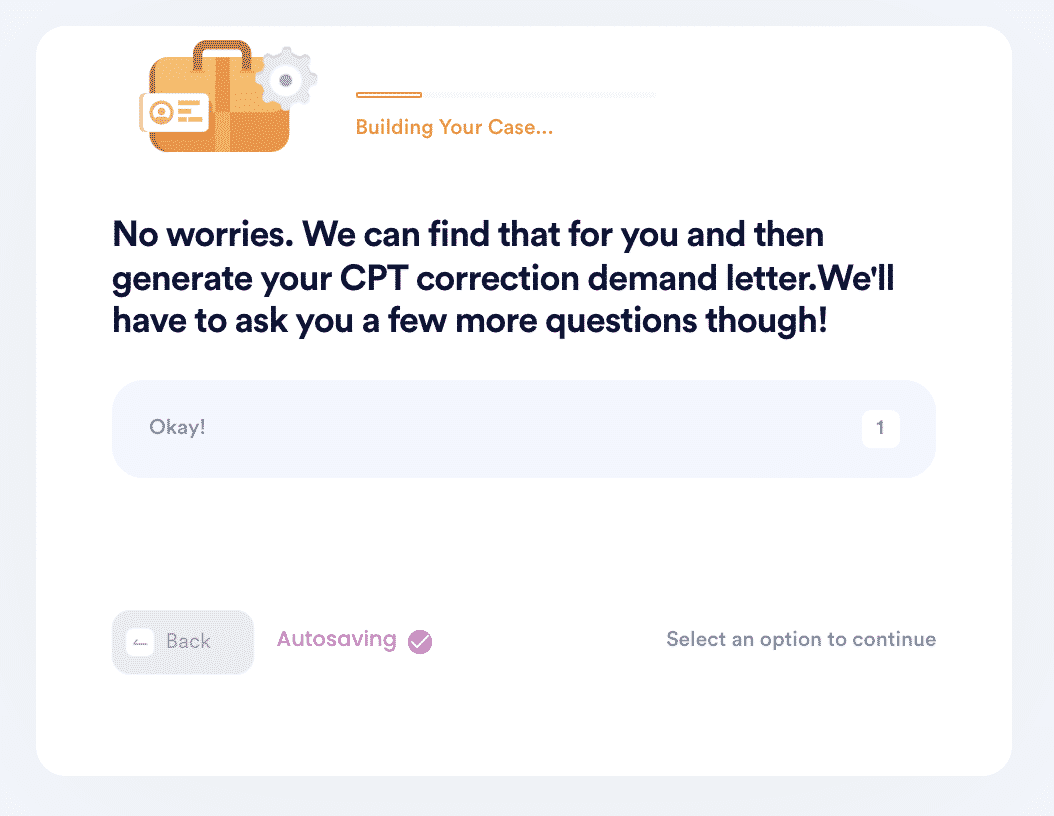
- And that's it! DoNotPay will automatically find the correct CPT code for your visit if you don't know it and then generate a demand letter on your behalf to send to your physician for a bill correction.
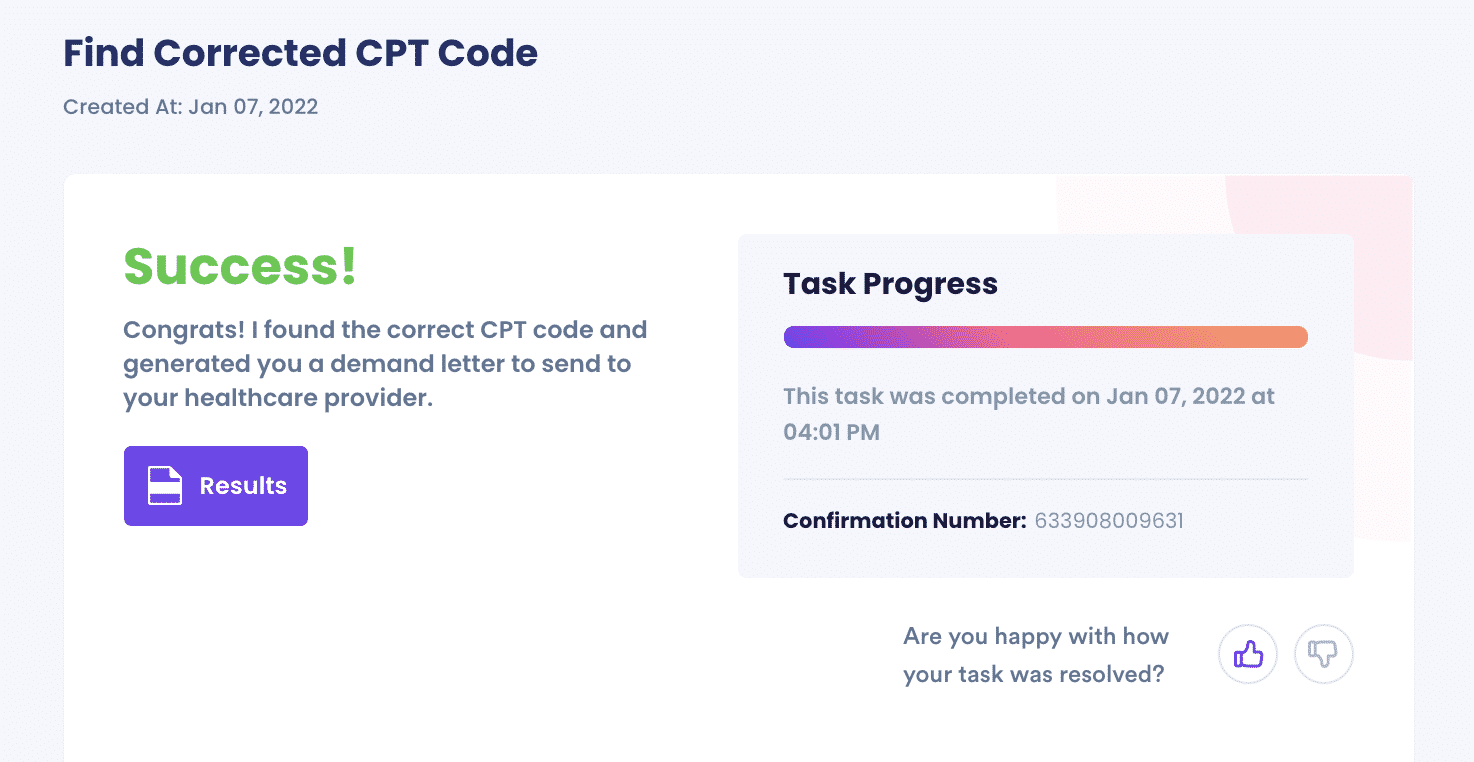
fraud to the relevant authorities with the help of DoNotPay.
Why Use DoNotPay to Solve CPT Upcoding Challenges?
With DoNotPay, making a report is:
- Faster: DoNotPay handles every process on your behalf in the shortest time possible, allowing you to refocus your efforts.
- Simpler: With DoNotPay, you don't have to spend much effort filling in forms and keeping track of any processes.
- Successful: DoNotPay makes a solid and successful case on your behalf.
How Else Can DoNotPay Help?
Besides helping you avoid health care fraud cases, DoNotPay can assist you in:
- Clearing overwhelming bills
- Requesting sick leave
- Filing a complaint against any company
- Solving advanced health care directive
- Suing anyone in a small claims court
Do you suspect foul play in your Medicare medical billing? Join DoNotPay to identify the correct CPT codes and the possibilities of upcoding fraud by health care providers.


